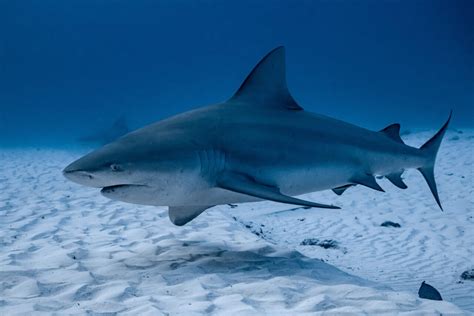The Great Lakes are a series of five interconnected freshwater lakes in North America, known for their natural beauty and diverse ecosystems. However, in recent years, there have been rumors and concerns about the presence of bull sharks in the Great Lakes. Bull sharks are known for their aggressive behavior and ability to thrive in freshwater environments, which has led to fears about their potential impact on the Great Lakes' ecosystem.
Are Bull Sharks Present in the Great Lakes?

There have been no confirmed sightings of bull sharks in the Great Lakes, and the scientific community remains skeptical about their presence in the region. While bull sharks have been known to venture into freshwater rivers and lakes, they are not typically found in the Great Lakes.
Several factors contribute to the unlikelihood of bull sharks in the Great Lakes:
- Geographical Barriers: The Great Lakes are separated from the Atlantic Ocean by the St. Lawrence River, which is a significant geographical barrier for bull sharks. The river's strong currents and waterfalls make it difficult for sharks to swim upstream.
- Water Temperature: Bull sharks prefer warmer waters, typically above 64°F (18°C). The Great Lakes' water temperature is usually colder, especially in the deeper areas, making it less suitable for bull sharks.
- Lack of Food Sources: Bull sharks are opportunistic feeders and require a diverse range of prey to survive. The Great Lakes' ecosystem is primarily composed of fish species that are not typically part of a bull shark's diet.
Despite the lack of evidence, there have been some reported sightings of bull sharks in the Great Lakes. However, these claims are often based on misidentifications of other fish species or hoaxes.
The Great Lakes' Ecosystem: A Delicate Balance

The Great Lakes' ecosystem is a complex and delicate balance of various fish species, plants, and microorganisms. The introduction of non-native species, such as bull sharks, could potentially disrupt this balance and have significant consequences for the ecosystem.
Some of the potential risks associated with the presence of bull sharks in the Great Lakes include:
- Competition for Food: Bull sharks are apex predators and would compete with native fish species for food, potentially leading to a decline in native populations.
- Predation on Native Species: Bull sharks are known to prey on a variety of fish species, including those found in the Great Lakes. This could lead to a decline in native species populations and potentially even extinctions.
- Habitat Disruption: Bull sharks require specific habitats to thrive, which could lead to changes in the Great Lakes' ecosystem, including the destruction of native habitats.
The Importance of Monitoring and Conservation

While there is no conclusive evidence of bull sharks in the Great Lakes, it is essential to continue monitoring the ecosystem and implementing conservation efforts to protect the region's biodiversity.
Some of the measures that can be taken to protect the Great Lakes' ecosystem include:
- Regular Monitoring: Regular monitoring of the Great Lakes' ecosystem can help identify any potential changes or threats, including the presence of non-native species.
- Invasive Species Prevention: Preventing the introduction of non-native species, including bull sharks, is crucial to maintaining the Great Lakes' ecosystem balance.
- Habitat Conservation: Protecting and restoring native habitats is essential to maintaining the Great Lakes' biodiversity and preventing the introduction of non-native species.
Gallery of Bull Sharks and the Great Lakes






FAQs
What is the likelihood of bull sharks being present in the Great Lakes?
+There is no conclusive evidence of bull sharks being present in the Great Lakes. While there have been reported sightings, these claims are often based on misidentifications of other fish species or hoaxes.
What are the potential risks associated with bull sharks in the Great Lakes?
+The potential risks associated with bull sharks in the Great Lakes include competition for food, predation on native species, and habitat disruption.
What measures can be taken to protect the Great Lakes' ecosystem?
+Measures that can be taken to protect the Great Lakes' ecosystem include regular monitoring, invasive species prevention, and habitat conservation.
Conclusion
While there is no conclusive evidence of bull sharks in the Great Lakes, it is essential to continue monitoring the ecosystem and implementing conservation efforts to protect the region's biodiversity. By understanding the potential risks associated with bull sharks and taking measures to prevent their introduction, we can help maintain the delicate balance of the Great Lakes' ecosystem.
